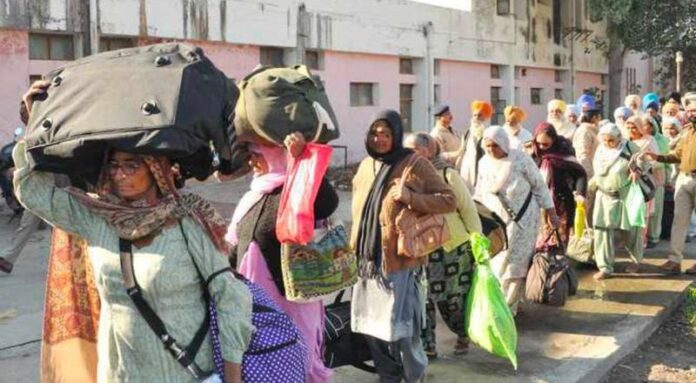Amritsar (Punjab) [India], April 9: Over 1,900 Indian Sikh pilgrims have been granted visas by the Pakistan High Commission to visit holy shrines across Pakistan on the auspicious occasion of Khalsa Sajna Diwas. The 10-day pilgrimage, beginning April 10, includes visits to sacred sites such as Gurdwara Nankana Sahib and Gurdwara Panja Sahib.
“We will be visiting Gurdwara Nankana Sahib, Gurdwara Panja Sahib and other religious places in Pakistan. It is a ten-day trip,” one pilgrim told ANI, expressing joy at being able to participate in the spiritual journey.
In a post on X (formerly Twitter), the Pakistan High Commission highlighted its efforts to promote religious travel, stating that over 6,500 visas will be issued for the upcoming Baisakhi celebrations. The Commission hosted a representative delegation of Sikh pilgrims on April 7 to extend its greetings and announce the visa facilitation.
“The step is reflective of Pakistan’s commitment to promote and facilitate travel to sacred and holy places of pilgrimage in Pakistan,” said Saad Ahmad Warraich, Chargé d’affaires at the Pakistan High Commission.
The visa initiative falls under the framework of the 1974 India-Pakistan Protocol on Visits to Religious Shrines, which allows citizens of both nations to visit each other’s religious sites.
Meanwhile, Indian Prime Minister Narendra Modi, in his ‘Mann ki Baat’ address on March 30, extended warm greetings for the vibrant series of festivals across the country, including Khalsa Sajna Diwas, Ugadi, Gudi Padwa, Chaitra Navratri, and Baisakhi.
“These festivals happen in different parts of the country but show how unity is woven into the diversity of India. We must keep strengthening this feeling of unity,” PM Modi said.
The Prime Minister also read out letters from citizens across India, sent in various languages, showcasing the country’s cultural richness during the festive season.
The pilgrimage comes as part of continued efforts to foster people-to-people ties and interfaith harmony between India and Pakistan, especially through religious diplomacy and shared heritage.


